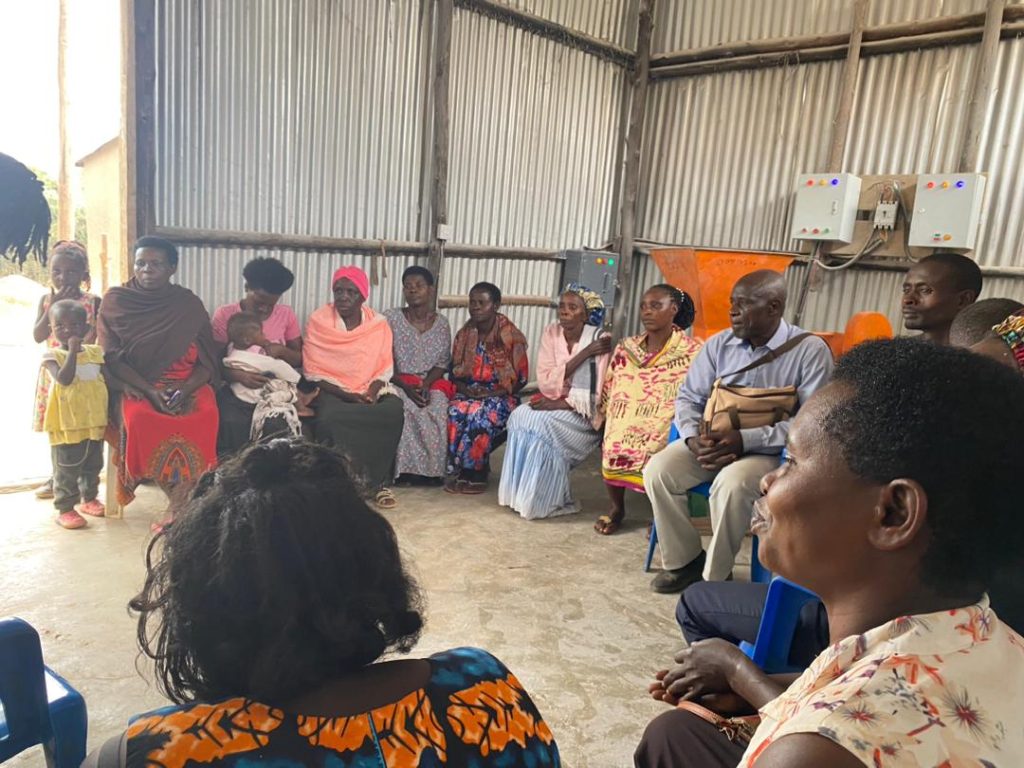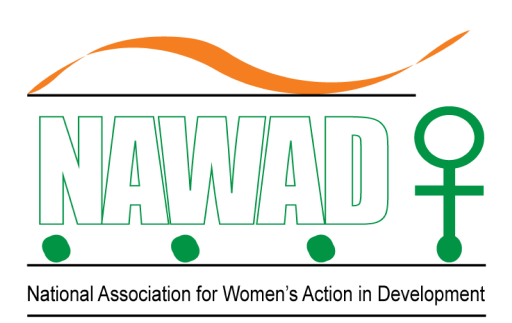
With support from USAID through the Uganda Civil Society Strengthening Activity (CSSA), NAWAD is implemented a one-year project titled Advocate for the Implementation of the NDP III Agro-Industrialization Implementation Action Plan (AINAPI) project in Mbarara and Rubirizi districts, running from April 1, 2023, to March 31, 2024. The project focused on empowering women smallholder farmers by enhancing their access to post-harvest handling and storage services for their agricultural products, strengthening agricultural extension, and promoting their engagement in the Parish Development Model (PDM) initiative to boost women’s agricultural productivity and economic empowerment.
The National Development Plan III (NDP III) is Uganda’s five-year development strategy that run from 2020/21 to 2024/25. It is focused on driving the country toward increased industrialization, improved service delivery, and higher household incomes. One of its key priorities is agro-industrialization, which aims at modernizing agriculture by improving productivity, promoting value addition, strengthening market access, and creating jobs, especially for women and youth. NDP III has guided government ministries, agencies, and partners in aligning their programs with national goals to boost the country’s inclusive growth and sustainable development.
AINAPI project was closely aligned with Uganda’s National Development Plan III (NDP III), specifically the Agro-Industrialization Implementation Action Plan. This national plan focused on adding value to agricultural products, improving post-harvest handling, and increasing farmers’ incomes. Through the project, women smallholder farmers were supported to adopt better farming and storage practices, which directly contributed to the goals of the Agro-Industrialization plan.
The Parish Development Model (PDM) is another government program that is aimed at bringing services and support closer to communities, especially at the parish level. It is focused on improving household incomes and creating opportunities for farmers. AINAPI project helped Women Small Holder Farmers understand and engage with the PDM so they could benefit from government resources, extension services, and financial support.
By building the skills of women farmers and connecting them to national and local development programs like NDP III and PDM, the project ensured that women were not left behind in Uganda’s journey toward agricultural transformation and economic growth.
Project Objectives
- To increase women small holder farmers’ access to post-harvest handling and storage services in their communities.
- To strengthen women small holder farmers’ engagement in the Parish Development Model (PDM) government initiative.
- To bridge the digital divide by equipping women smallholder farmers with ICT skills for improved access to agricultural extension services.
- To support women-led small holder farmer business enterprises and access to credit in banks.
Captured moments.

Key Project Activities and Impact.
- 📢 Advocacy training:
78 Women Small Holder Farmers trained to demand the access to agricultural extension and PDM services from duty bearers. - 📱 ICT & smartphone training:
52 Women Small Holder Farmers trained on smartphone and WhatsApp use to demand and access agricultural extension services remotely and timely from extension officers.
34 smartphones distributed among women group leaders. - 💰 Financial literacy training:
110 Women Small Holder Farmers trained in financial literacy in partnership with Centenary Bank to increase their knowledge financial management and the loan acquisition cycle for their agri-businesses. - 👥 Business enterprise training:
325 Women Small Holder Farmers trained on business enterprise modalities at a group level. - 💳 Credit & loan recovery training:
12 (6 NAWAD staff + 6 Women Small Holder Farmers group leaders) trained in credit management and loan recovery to help them in managing a business enterprise. - 💸 Loan facility established:
25 Women Small Holder Farmers accessed credit at a low 2% interest rate payable in 6 months to purchase equipment for post-harvest handling and storage as well as set up micro-enterprises for extra income in their households.
Project Achievements.
- Women Small Holder Farmers learnt how to demand for agricultural extension and PDM services from government duty barriers.
- The women gained skills to use smartphones and WhatsApp to access agricultural information remotely.
- Women group leaders received smartphones to support group communication to assist in the smooth management of group business enterprises and to access group services remotely.
- Women Small Holder Farmers gained knowledge on saving, budgeting, and taking loans from the bank to invest in their agri-businesses.
- The women received low-interest loans to invest in post-harvest tools and micro-businesses.
- The women also gained knowledge on how to run a group business and their roles in it.
With support from USAID, we are proud to walk alongside women smallholder farmers in Mbarara and Rubirizi districts as they step into stronger, more influential roles within their communities. The women farmers have gained financial independence, improved their food storage practices, and grown stronger economically. This has improved the agricultural system from the ground up, as the women have become more vocal, informed, and active in advocating as well as accessing for agricultural extension services in their community.
As we look ahead, NAWAD is fully committed to building even stronger partnerships and scaling up women-led solutions that transform agriculture and livelihoods across Uganda.
